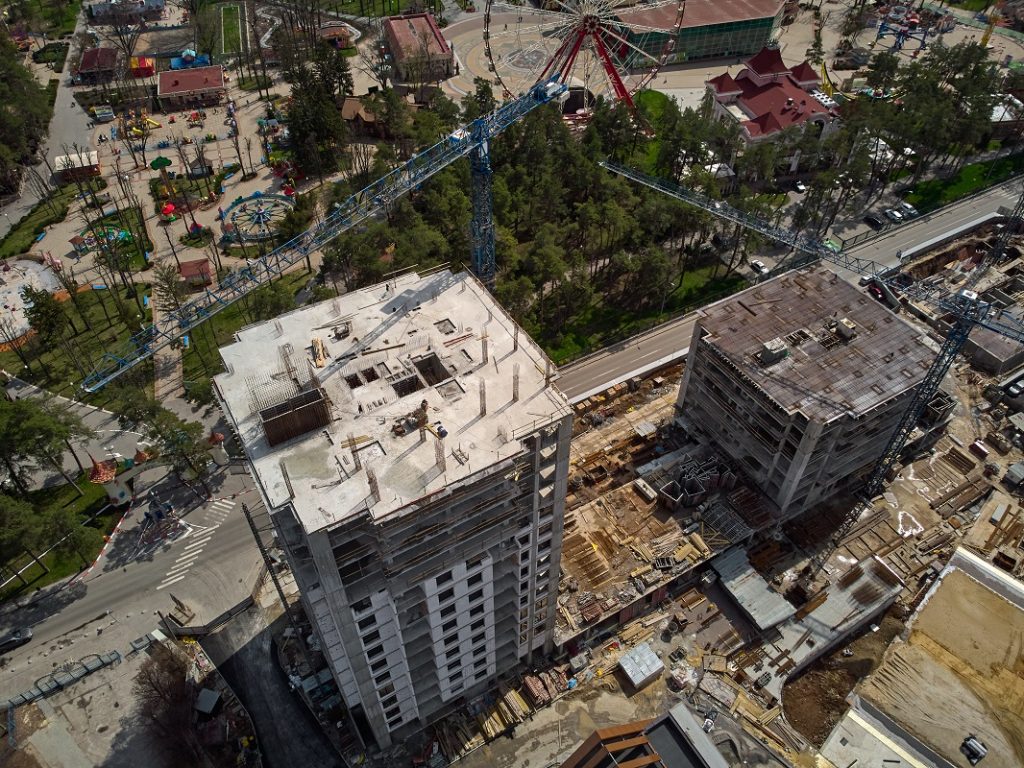- Investing in high-quality equipment is advisable to ensure efficient project management and achieve long-term success.
- To enhance clarity and organization, it’s recommended to create a detailed plan for the project that clearly outlines each team member’s responsibilities.
- Regularly keep track of your spending and progress to monitor overall performance.
- To avoid misunderstandings, conflicts, and delays, it is important to create unambiguous ways for stakeholders to communicate with each other.
Project management in construction is a complex process that requires careful planning and execution. Projects can spiral out of control without proper project management, leading to delays and even more expensive mistakes.
To ensure efficient project management, construction professionals need to develop effective strategies for managing their projects from start to finish. By consistently implementing these strategies throughout a construction project’s life cycle, managers can avoid costly problems while maximizing efficiency.
Invest in Quality Equipment

Efficient project management in construction heavily relies on the quality of equipment used. Investing in quality equipment is an expense and a strategy for long-term success. High-quality equipment reduces the risk of equipment breakdowns and ensures that projects are completed on time, within budget, and with minimal disruptions.
One essential piece of equipment for construction projects is high-quality webbing slings. These slings are durable materials designed to lift and move heavy loads safely. When investing in webbing slings, it is important to consider factors such as the load capacity, length, and width of the slings, to ensure they are suitable for the intended task. Investing in quality equipment is a proactive approach that guarantees long-term success and minimal downtime, making it a crucial aspect of project management.
Develop a Comprehensive Project Plan
Developing a comprehensive project plan is a crucial part of any construction project. Here are some tips for creating a successful project plan:
Assign Responsibilities to Team Members

As in any team-based project, assigning responsibilities is a crucial aspect of efficient project management in construction. Assigning responsibilities involves carefully dividing labor to ensure that each team member is held accountable and can work to their strengths. Properly assigning responsibilities can help maximize productivity, enhance collaboration, and reduce the likelihood of confusion or errors in deliverables.
Failure to assign clear responsibilities can lead to misunderstandings of roles and expectations, leading to delays and poor performance. As such, it is important for project managers to establish clear lines of communication, set achievable targets, and ensure that the project’s goals are aligned with the capabilities of each team member to ensure its seamless transition through all stages of the project.
Monitor Spending and Progress Regularly
Monitoring spending and progress regularly is a critical aspect of efficient project management in construction. It involves tracking expenditures, measuring progress, and identifying potential risk factors that could negatively impact the project.
Keeping tabs on these factors offers valuable insights and allows project managers to adjust resources, allocate expenditures appropriately, identify scope creep, and monitor the project’s overall performance.
Failure to monitor spending and progress regularly could result in financial loss, reduced efficiency, and costly delays. As such, construction managers must have a keen eye on the project’s financials and keep track of progress to ensure it remains on track.
Establish Clear Communication Channels
Establishing clear communication channels is a crucial strategy for efficient construction project management. It involves creating and implementing effective ways of exchanging information among stakeholders, such as architects, contractors, clients, suppliers, and regulatory authorities.
Clear communication channels ensure that all parties involved are on the same page, minimizing misunderstandings, conflicts, and delays that can impact the project’s timeline, budget, and quality. Even a well-planned construction project can quickly devolve into chaos without proper communication.
As such, project managers must prioritize establishing clear communication channels early in the planning phases of a construction project and maintain them throughout the project’s lifecycle to ensure project success.
Set Goals, Deadlines, and Milestones
In construction, it is essential to set clear and achievable goals, deadlines, and milestones as a strategy for efficient project management. This involves establishing specific objectives for the project, outlining the desired outcomes, and setting deadlines for each phase. Additionally, milestones can be established to track the project’s progress and ensure that it is on track to meet the desired outcome.
These methods can help streamline construction, increase productivity, and enhance efficiency. With a clear plan, construction managers can better manage their resources, allocate their time effectively, and efficiently complete projects on time and within budget.
Utilize Automation Tools and Technologies
Utilizing automation tools and technologies has become a game-changer in the construction industry. By definition, automation tools and technologies are computer-controlled devices that reduce the time and manpower involved in certain activities.
Incorporating automation tools into construction and project management is essential for companies looking to maximize efficiency and job productivity. These automation tools frequently track timetables, output, and progress to keep all team members informed.
Additionally, they can help eliminate repetitive tasks and improve quality control while reducing accidents and human error risks. Emphasizing the importance of incorporating automation tools in project management and construction operations, companies can reduce costs, speed up project timelines, and ensure stakeholders receive timely project updates.
These are just some strategies that can be used to manage construction projects effectively. Managers can ensure efficient project management throughout the entire life cycle of a construction project by adopting these practices and investing in quality equipment.




